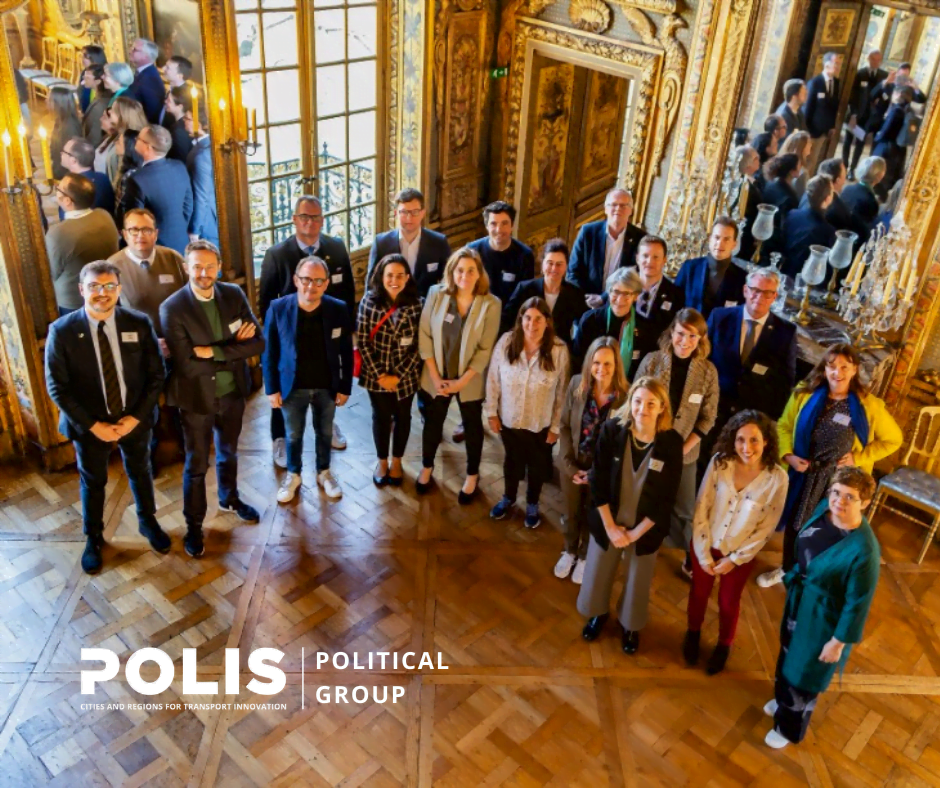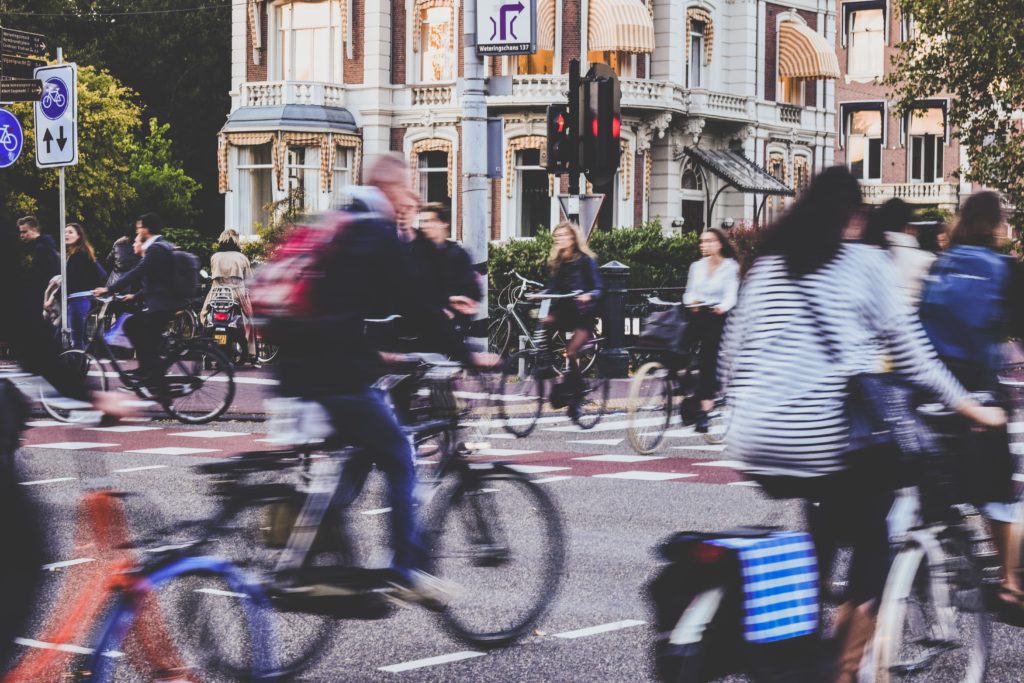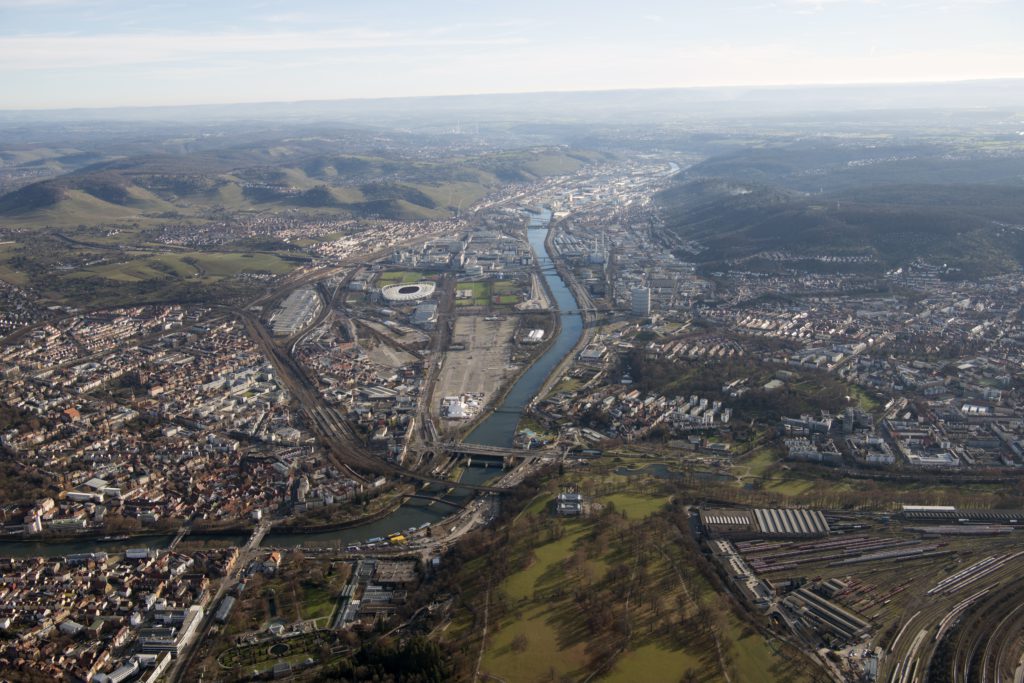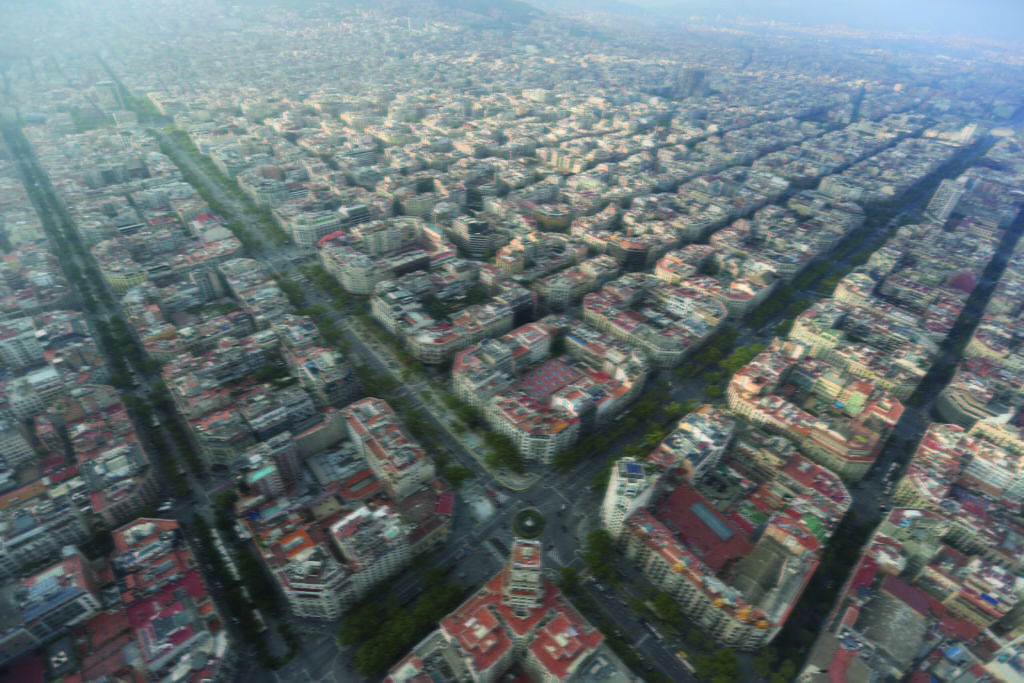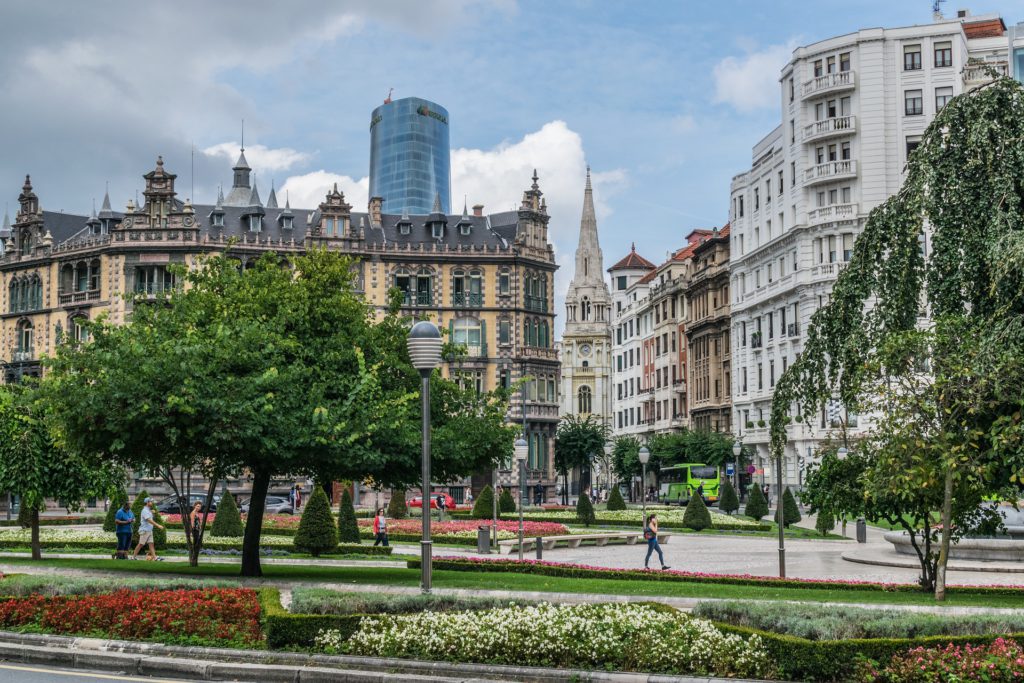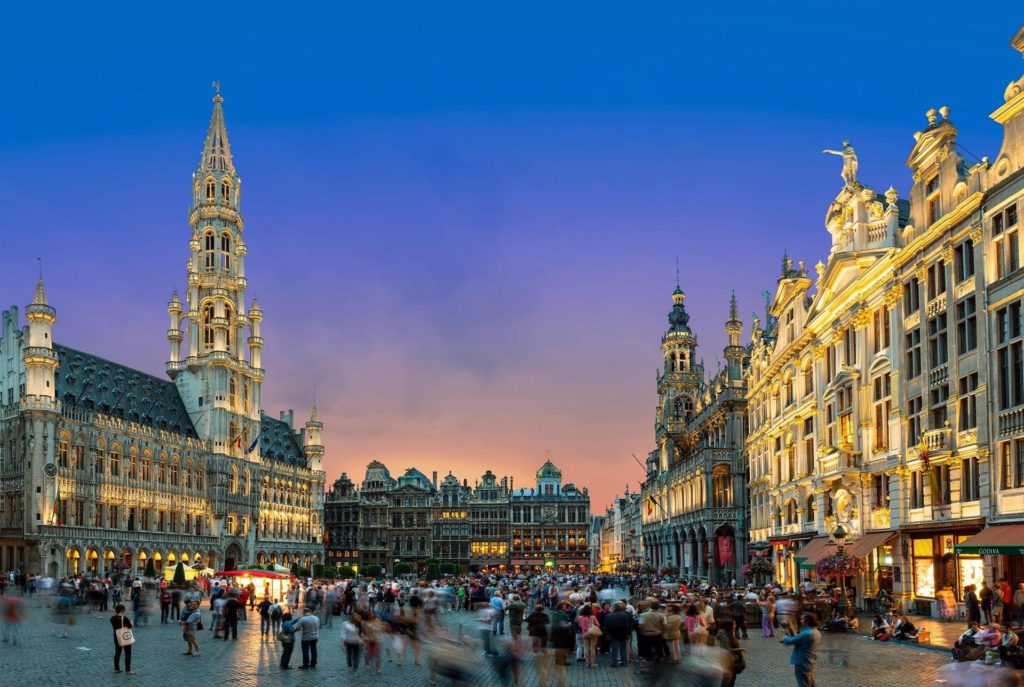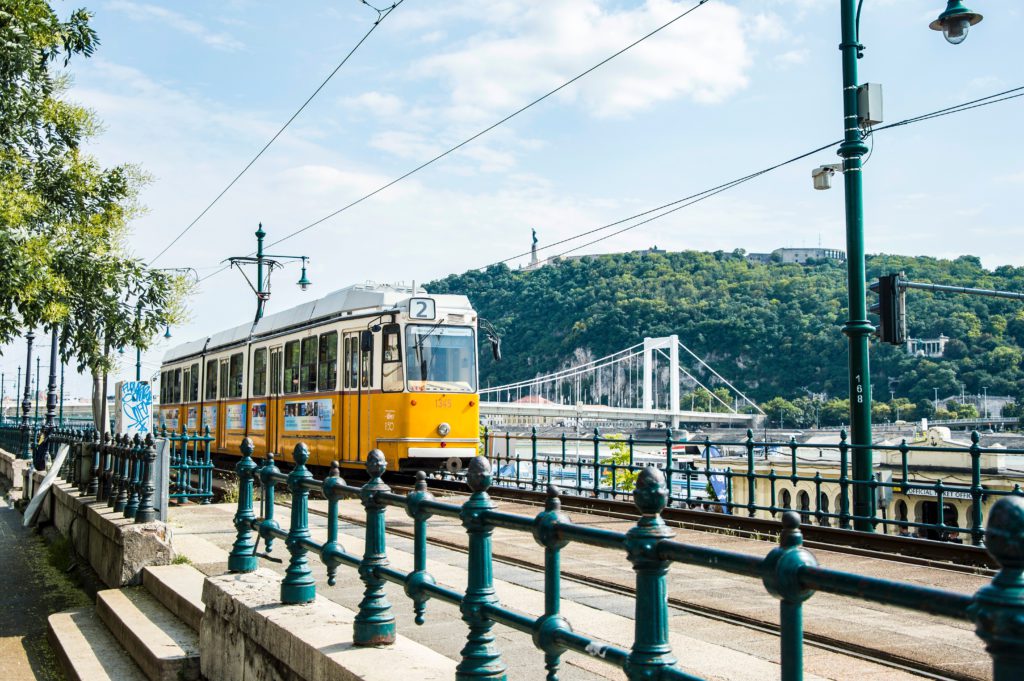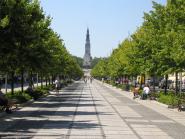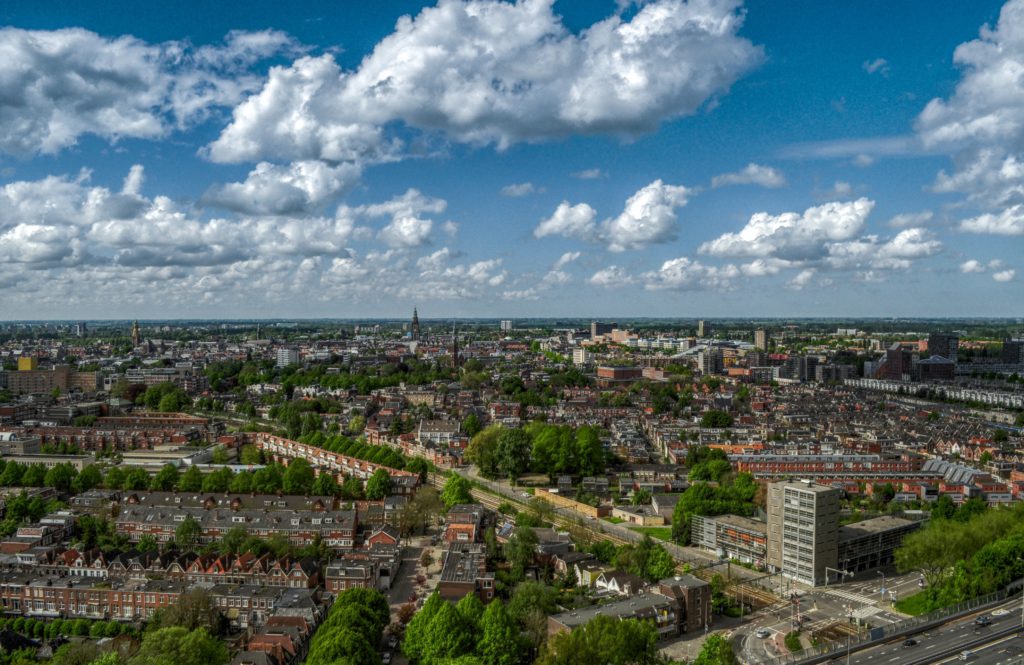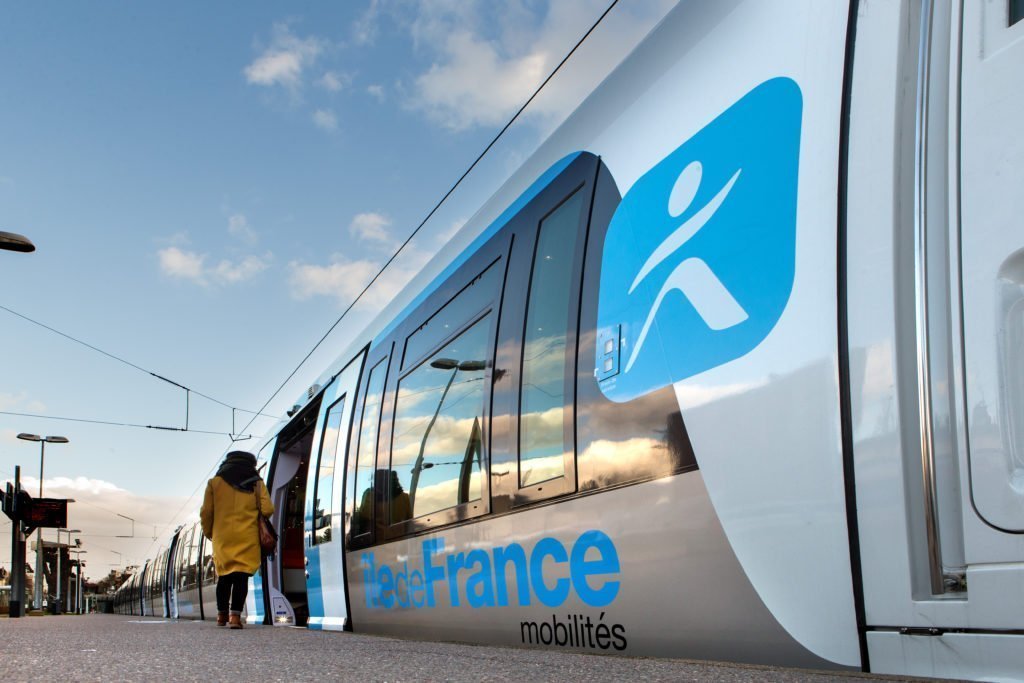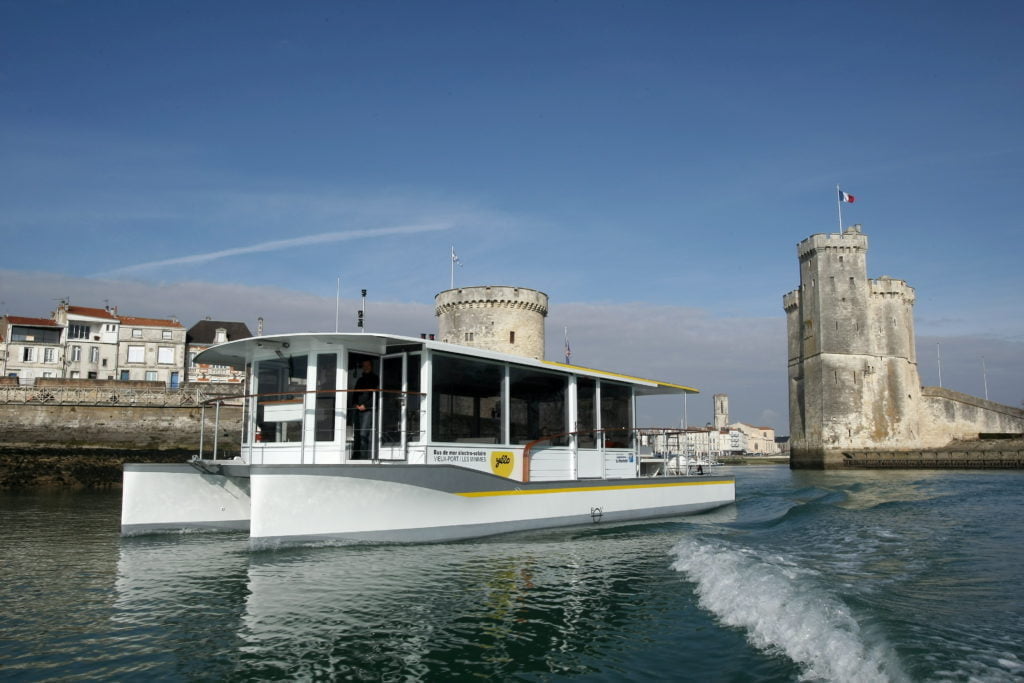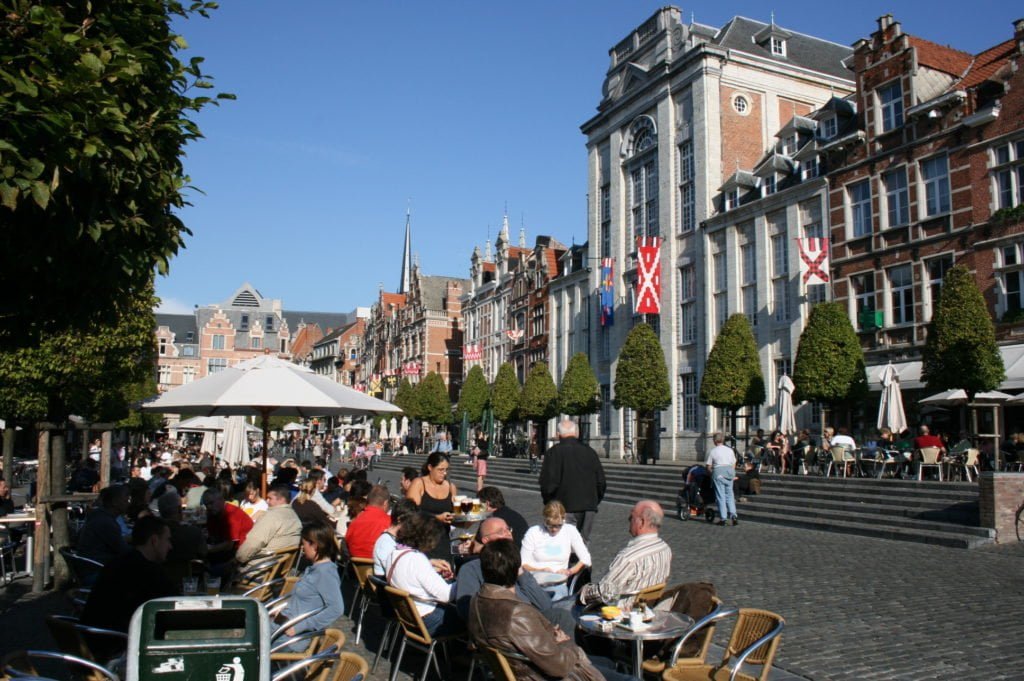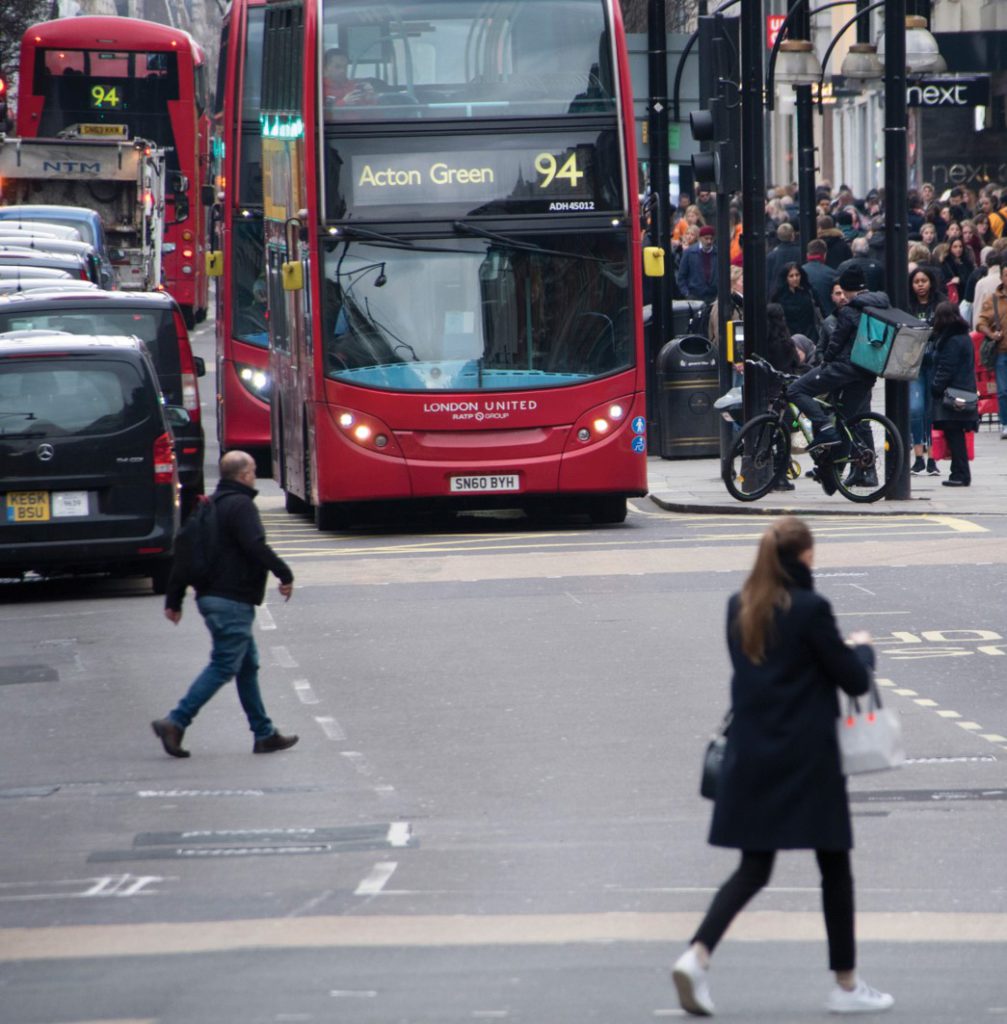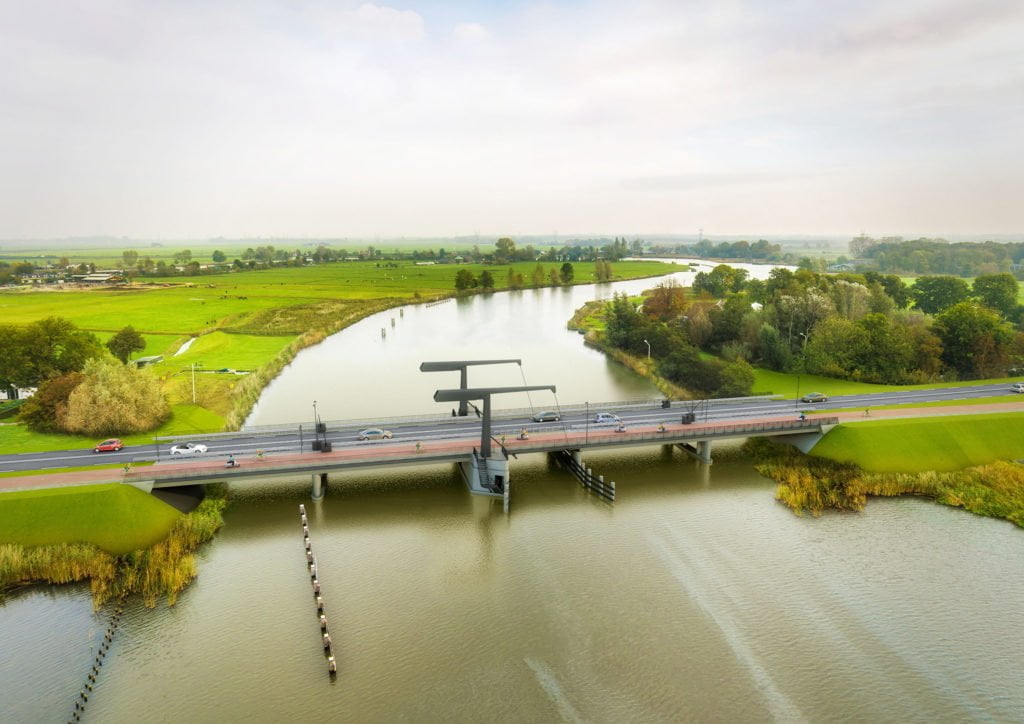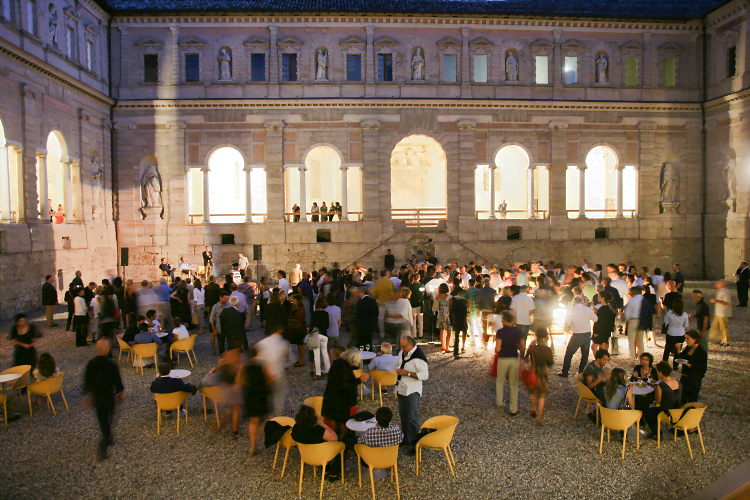POLIS’ Political Group summit in Paris: Leadership rules!
(Paris, 18th of March 2022) High-level political leaders in charge of mobility in key European cities and regions convened in Paris for a summit on the future of sustainable urban mobility, the POLIS' Political Group, to discuss the challenges, solutions, and (most importantly) how we will get there!
Urban mobility is responsible for almost one-quarter of the EU's greenhouse gas emissions from the transport sector. But that is not all: congestion is costly to local businesses, road safety remains a critical concern, cities have to deal with population growth, and existing fuel sources present genuine security and health threats.
Representatives from several POLIS members – including 25 deputy mayors, regional ministers, and secretaries of state for mobility – sat down to share and learn about the path to a cleaner, greener, and more inclusive urban mobility.
This POLIS Political Group summit was organised in cooperation with the City of Paris, Ile-de-France Mobilités, and the world-leading mobility trade show, Autonomy.
POLIS Secretary General, Karen Vancluysen, said:
"Your leadership will be critical. We are at a crossroads: we need a green recovery from the pandemic and we need to meet European climate targets. Cities and regions hold the keys to many solutions. This is why we are all here today".
"We need to ensure this transport transformation will be a just transition, creating an urban mobility ecosystem which works for everybody and leaves no one behind."
From dialogue to action!
Action on the ground was the focus of the summit. As climate targets loom, Europe is running out of time to deliver the comprehensive changes needed, and empty words will not serve our cities, their citizens, or, come to that, their politicians.
Elke Van den Brandt, Minister for Mobility for the Brussels Capital Region, which has made firm commitments to cutting transport-related emissions, improving safety, and giving more space to cycling and walking, said:
"People want action; they want to see change. They do not vote for politicians for them to hide, they want them to act."
Delegates demonstrated how to translate political dialogue into real, tangible action on the ground. It was a full day of honest, open conversations about what has worked (and what has not), the challenges faced, and the risks on the road towards carbon neutrality and smarter mobility.
Paris' Deputy Mayor David Belliard summed up the summit's importance:
"It is up to us, metropolises, regions, cities, and territories, to continue and intensify our efforts to transform and decarbonise mobility."
Laurent Probst, General Director of Île-de-France Mobilités, welcomed the leaders attending the summit:
"We are very pleased to host the POLIS Political Group meeting, as a member of POLIS since 2011. This leading European network is necessary because, despite different types of governance and public transport systems, we share common objectives in terms of mobility, and we all face common issues, which the Covid-19 crisis has well highlighted."
"The short- and long-term challenges ahead are multiple and must be tackled together, from returning to normal transit ridership (pre-pandemic level) to combating climate change."
Indeed, attending cities and regions have set their sights high and are working hard to hit these targets.
Ile de France Mobilités is rapidly developing massive cycle infrastructure at a regional level, in and around train stations, to create a multimodal option that truly rivals personal car use. The City of Leuven (2020's innovation capital) is implementing awe-inspiring multimodal integration and citizen participation fora. In addition, Baden Württemberg is on a mission to make the entire region carbon neutral – as a region with the same population as the whole of Belgium, this is no meagre feat.
Action on the ground is of the essence, as Leuven's deputy mayor and POLIS President David Dessers warned,
"Doing nothing will be more expensive than taking action now."
Different realities, same dreams
The combination of European (and international) capitals, regions, and smaller and medium-sized cities made for a unique forum.
It is not often you see cities of all shapes and sizes (London, Paris, Barcelona, Rio de Janeiro, Czestochowa, Reggio Emilia), along with regions (like Baden Württemberg and Noord-Holland) sit down to discuss common challenges.
Political leaders have much to learn from their peers - regardless of size, geography, and governance models. POLIS has long championed the voices of regions and Small and Medium-Sized Cities (SMCs) at the international level, highlighting the interconnections between urban and peri-urban transport flows and the need for collaboration.
Leuven's David Dessers said,
"Our population sizes, modal mixes, and even funding structures may differ, but we are all working towards the same goal."
Janet Sanz Cid, Deputy Mayor for the City of Barcelona, said,
"Cities are a team; we cannot feel alone in this transformation. We are all working towards the same goal."
Reallocating space
The summit was a chance to discuss the challenges cities have faced in the process of reallocating space towards more sustainable transport, implementing active travel infrastructure, and adjusting urban freight flows.
It is no secret that these measures have faced challenges, and it takes immense fortitude from urban decision-makers to see these goals through to completion. But change is afoot and is advancing fast – thanks to the firm and decisive leadership of several participants in this meeting.
Barcelona has proved a frontrunner in redesigning the metropolis towards citizens and sustainable modes of transport. From superblocks to public transport acceleration, the Spanish city has demonstrated time and time again that reallocation of urban space is not just possible but also wins votes.
Janet Sanz Cid, their Deputy Mayor, said,
"We see one-million cars cross our city every day; we need to change this. Our goal is gaining space back for citizens, so we have scaled up our original Superblock concept to understand the city as a Superblock."
Paris is on a similar crusade. Since 2020, for example, 150 'School Streets' (roads closed to motorised traffic in the immediate vicinity of schools) have been created, with plans for many more to come.
However, if you are going to restrict (and even remove) car traffic and parking, travellers must be provided with a viable alternative. Both cities underscored the importance of improving public transport in this process.
As Paris' David Belliard pointed out,
"Active travel may capture international headlines – and rightly so – but cycling is not always accessible, or desirable, to everybody, and expanding public transport options is critical, particularly outside of the city centre."
Sustainable mobility wins votes when you engage citizens!
How can local and regional authorities build sustainable mobility visions with their citizens and explain the policies needed to achieve them?
This is all too often a key question for political leaders. Indeed, implementing change is not easy, and city and regional leaders often face adversity. However, the potential rewards are immense.
As several leaders noted during the summit, the electorate is increasingly voting for these changes, but this requires keeping citizens on board and showing them we're heading in the right direction.
Paris' David Belliard said,
"It is about telling citizens - we are not against you. We want to work with you. Let us understand what you need and how new mobility strategies can be developed in coordination with these needs."
Participating leaders shared new ways to engage with citizens and work with local businesses to develop and adopt new mobility strategies and flexible uses for public space.
London and Brussels explained how they have been balancing incentive and deterrence measures to encourage transport users to adopt more sustainable mobility choices by creating targeted and compelling messages.
This means paying close attention to the local level. Both capitals underscored the need to turn to local neighbourhoods to help build coalitions with citizens, addressing their concerns around climate change, affordability, and accessibility.
This conversation also allowed to cement and renew collaborations between UK cities and their European neighbours.
Seb Dance, London's Deputy Mayor for Transport, said,
"Paris has spurred a whole new way of thinking about urban design; I feel we are at the birthplace of some of the concepts we are talking about today. Our collaboration with our peers across the Channel is crucial."
"In London, we are adapting road user behaviour, perhaps paving the way for others to take a similar approach."
London is putting words into action with the planned expansion of its Low-Emission Zone and the development of an Ultra-Low Emission Zone, improving air quality and transforming traffic flows across the city.
This has also been a challenge for smaller cities. However, they are reaping the rewards from strong action. From Leuven to Baden-Württemberg, those who have been brave enough to make comprehensive steps towards sustainable mobility are being re-elected.
Leuven's David Dessers said,
"Support for new mobility plans is growing. We faced backlash when we began this journey, but after three years, it is clear that people support these changes. The parties favouring these new traffic circulation plans were rewarded for their efforts."
The road to climate neutrality… starts with cities!
The summit proved that international policy and legislative agendas are key to local authorities' capacity for moving forward.
To support cities in this process, the European Commission joined the summit. Their scope was to present the measures they are taking, answer questions and feedback on members' responses to the Commission. It did so by discussing Urban Nodes, the Fit for 55 package, alternative fuel infrastructure regulations, ITS directive revisions, and the climate-neutral cities mission.
Many (particularly regional and smaller city members) had pressing questions about how data sharing, SUMPs, and UVAR legislation would apply (and could) to their situations. Charlotte Nørlund-Matthiessen, Policy Advisor to the European Commissioner for Transport Adina Vālean, answered them.
Facilitating exchange between cities and European institutions is central to POLIS' work. If local leaders are to be empowered to create the policies which fit their contexts, they must maintain links with European and global policy agendas, both to be able to respond to changes and to help shape these shifts.
Aside from this summit, POLIS' meetings regularly connect cities and regions with European policymakers who help clarify and guide members around policy implications as well as funding opportunities from decarbonisation to data sharing regulation.
So, what is next? The Political Group proved Europe's shift towards sustainable urban mobility can happen, is happening, and must happen. And what is more? It all starts with courageous leadership. Next June, leaders will convene again for a Leadership Summit in Glasgow to further discuss the transition to zero-emission.
*****
About POLIS:
- POLIS is the leading network of European cities and regions committed to Transport Innovation.
- For more information: https://polisnetwork.eu
Images Available:
- Photos from the event are available for publication, here: POLIS network | Flickr
- Photo credit: Victoire Duhot/Autonomy
For more information on this Press Release, please contact:
- Isobel Duxfield, POLIS Communications & Membership Officer
- iduxfield@polisnetwork.eu
*****
Political leaders that participated in this meeting:
- David Belliard, Vice Mayor, Ville de Paris
- Laurent Probst, General Director, Île-de-France Mobilités
- Elke Zimmer, State Secretary, Region of Baden-Württemberg
- Janet Sanz Cid, Deputy Mayor, City of Barcelona
- Nora Abete, Deputy Mayor, City of Bilbao
- Elke van den Brandt, Minister for Mobility, Brussels Capital Region
- Samu Márton Balogh, Mayor's Chief of Staff, City of Budapest
- Piotr Grzybowski, Vice-Mayor, City of Czestochowa
- Philip Broeksma, Vice Mayor, City of Groningen
- Bertrand Ayral, Vice President for Mobility, La Rochelle Agglomeration
- David Dessers, Deputy Mayor, City of Leuven, and POLIS President
- Seb Dance, Deputy Mayor for Transport, London
- Claire Holland, Vice-Chair, Transport and Environment Committee, London Councils
- Juan Corro Beseler, Chief Innovation Officer, EMT Madrid
- Federico Jiménez de Parga, General Coordinator of Mobility, Madrid City Council
- Jeroen Olthof, Deputy for Mobility and Accessibility, Province of Noord-Holland
- Carlotta Bonvicini, Alderman for Sustainable Policies, Comune di Reggio Emilia
- Eugenio Patanè, Deputy Mayor for Mobility, Roma Capitale
- Andrei Novikov, Deputy Mayor, City of Tallinn
- Marja Ruigrok, Member of the Executive Board, Amsterdam Transport Region
- Charlotte Nørlund-Matthiessen, Policy Advisor to the European Commissioner of Transport Adina Vălean
- Manuela Lopez Menendez, Secretary, City of Buenos Aires
- Maína Celidonio, Secretary, City of Rio de Janeiro
